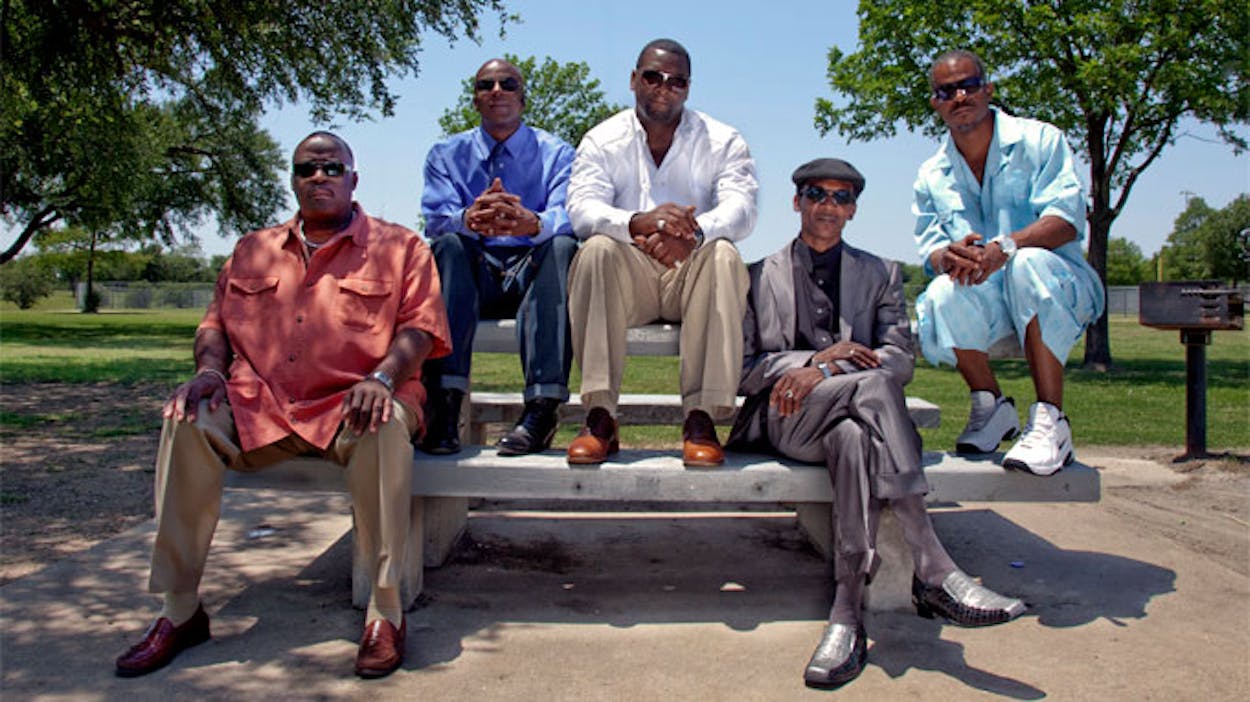Texas’s criminal justice system is notorious for aggressive prosecutors and tough sentences, but it’s quickly also becoming known for something else: exonerations. A recent report by the National Registry of Exonerations found that 53 of the 114 exonerations since 1989 occured in Texas. Of those, nearly half were handled by the Dallas County District Attorney’s Office, more than any other region in the nation.
It’s a peculiarly endemic problem for the area, one that prompted the exonerated men of Dallas to band together and form the Freedom Fighters, a private detective agency that investigates cases of other inmates claiming they were wrongfully convicted. This story came to the attention of documentary filmmaker Jamie Meltzer, an assistant professor at Stanford University’s documentary film program, and he is now making Freedom Fighters, a film about the organization and its founding members.
Nate Blakeslee: I understand the idea for your film about the Freedom Fighters grew from a 2011 report in the Texas Observer. What drew you to this story?
Jamie Meltzer: Michael May, who wrote the Observer piece, was involved as a reporter and consultant for my previous film, INFORMANT [about Brandon Darby, a controversial Austin activist who became a government informant]. He called me up and told me about this new detective agency started by exonerees in Dallas, and I was immediately hooked. I loved the idea of approaching the issue of wrongful conviction from a completely fresh vantage point. That a couple of exonerees had decided to start a detective agency just seemed like an amazing and novel concept, one of those things that just makes perfect sense –who better than them, right? But also it makes one do a double-take and wonder: How is this going to turn out? I grew up loving film noir and detective films, so this kind of fit into that as well, except translating noir into documentary film form. Documentary Noir I guess . . .
NB: What did you learn about exonerees and how they see the world?
JM: So far I think the thing that struck me the most is, here are guys who have spent decades in prison for crimes they didn’t commit and they are so amazingly positive and not bitter at all. They want to turn that tragedy into real, lasting change to the justice system. They really are on a mission, with the detective agency of course, but also with their support group for exonerees (now more than thirty people strong in Dallas), and through lobbying for change at the Capitol in Austin.
I also learned a lot about the particulars of Dallas, which had one of the worst records in terms of putting people away for crimes they didn’t commit, particularly in the era where Henry Wade was district attorney. But now with Craig Watkins as D.A., Dallas is actually a model for how all cities and counties, nationwide, should address issues of wrongful conviction. It starts by opening up the cases and testing DNA, and looking at non-DNA cases as well.
So Dallas has both sides of the coin: a real checkered past, and a present system that is a model in many ways. I think what the Freedom Fighters are doing–grassroots investigation work–could also be a model.
NB: You’ve made a film about an FBI informant from Texas, and are now finishing a film about wrongly accused men. Why the interest in criminal justice?
JM: I’m just interested in complex stories and storytelling that grapples with fascinating characters, and the criminal justice system just seems like one place where these stories naturally occur. In INFORMANT I was interested in a multi-dimensional look at a story that had been oversimplified into right and left camps. I was interested in the grey areas. With Freedom Fighters I’m trying to bring to life cases of wrongful conviction in a compelling way we haven’t seen before, and to highlight the lives of these exonerated men. At its core the film is really about their transformation while in prison for something they didn’t do, and after their release coming to terms with what happened to them, and trying to take on the system that wronged them.
NB: So many good documentary films have been made about criminal justice in Texas: The Thin Blue Line, Incendiary (about the Cameron Todd Willingham case), and more recently the Al Reinert film about the wrongful prosecution of Michael Morton, just to name a few. Why has this been such a rich vein for filmmakers for so long?
JM: I think documentary filmmakers are attracted to exposing injustice, and we are also suckers for an amazing story. Criminal justice in Texas seems to have it on both counts.
Meltzer is raising funds for his film on Kickstarter. His film INFORMANT will be released later this year.







